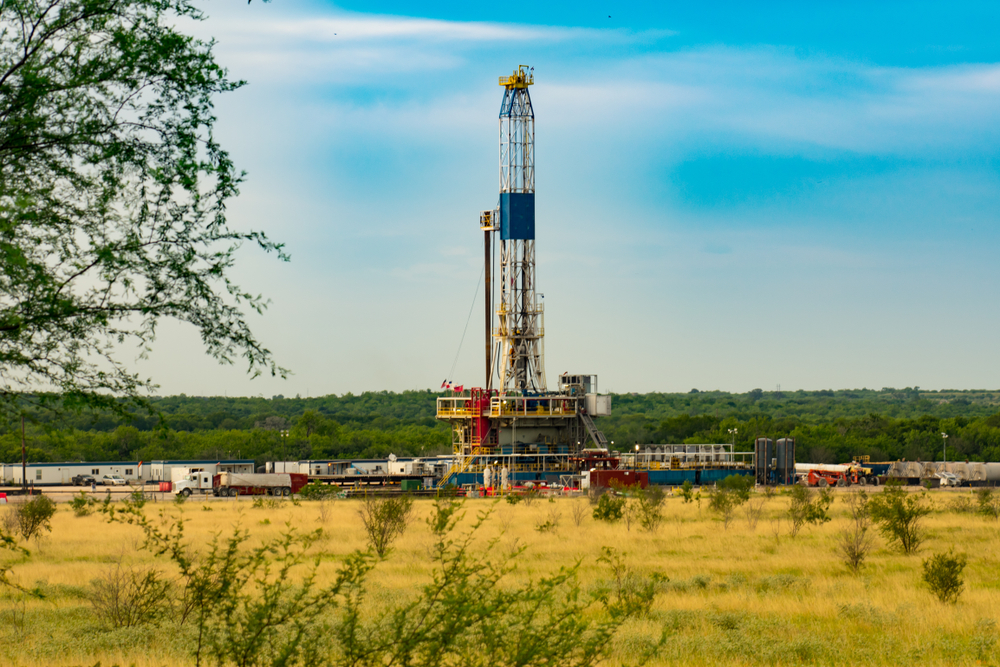
Pennsylvania could lose more than 600,000 jobs and roughly $261 billion over the next five years if a national ban on hydraulic fracturing, or fracking, were to be put in place, as some Democratic presidential candidates have called for, according to a recent report by the U.S. Chamber of Commerce’s Global Energy Institute.
In the report, “What If…Hydraulic Fracturing was Banned?,” the institute examined the impact such a ban would have on the overall U.S. economy as well as the specific effect it would have on the five states – Ohio, Pennsylvania, Colorado, Texas, and New Mexico – with large energy economies and the two states – Michigan and Wisconsin – with large manufacturing sectors.
More than 5.9 million are expected to be lost across the seven states by 2025 if the ban is put in place by 2021. The paper also anticipates that a national fracking ban would decrease gross domestic product by $7.1 trillion.
Pennsylvania is currently the second-largest producer of natural gas in the United States primarily due to the development of the Marcellus and Utica Shales over the past 10 years.
“Natural gas has helped revitalize [Pennsylvania] communities, not only in and close to production areas where new housing, hotels, restaurants, and other businesses have been established, but across the commonwealth due to an assessed perwell impact fee that has raised $1.7 billion for community projects, environmental programs and public safety initiatives,” the report stated.
In Pennsylvania, a fracking ban would increase cost of living rates by $4,654 per capita for goods and services while household incomes in the state would be reduced by about $114 billion, taking a heavy toll on energy employers, producers, and consumers in the commonwealth.
Gene Barr, president and CEO of the Pennsylvania Chamber of Commerce, said that the U.S. Chamber’s report should be taken as a warning for any advocates of banning the domestic development of natural gas.
“It would be devastating for every aspect of our state,” Barr said. “A ban on fracking would risk hundreds of thousands of direct and indirect jobs, affecting income and energy prices for Pennsylvanians. It would also jeopardize all of the programs and services that have benefitted from the state’s natural gas impact tax funds.”
The report does not acknowledge the climate or public health concerns connected to hydraulic fracturing, which was examined in a December 2019 Carnegie Mellon University study. That report found that pollution and climate change costs of fracking equaled $57 billion in the Appalachian region. Similarly, the Pennsylvania Department of Environmental Protection’s 2017 Greenhouse Gas Inventory showed that natural gas production, transmission, and distribution released 10.6 million metric tons of carbon dioxide – roughly 4 percent of all state emissions.
Marty Durbin, president of the chamber’s Global Energy Institute, argued in a statement that proponents of a fracking ban should not discount the huge environmental benefits natural gas has provided the country, such as the replacement of coal as a dominant energy source.
“The Commonwealth has seen the positive effects of domestic natural gas,” David Taylor, president and CEO of the Pennsylvania Manufacturers’ Association, said. “Abundant. Affordable. Clean-burning. This is what is heating Pennsylvania homes, firing industrial furnaces, and generating electricity across the state.”
The report noted that a projected $1.9 trillion in lost local, state, and federal tax revenue across the seven states would directly cut off a source of funding for schools, first responders, infrastructure, and other critical public services.
“Over the past decade, consumers have enjoyed huge cost savings from affordable, locally produced natural gas,” Marcellus Shale Coalition President David Spigelmyer said. “If the ban were to be put in place, not only will they get hit with deep reductions in household incomes, but the cost of living rates will skyrocket.”
Household incomes would be largely impacted by the extra energy costs incurred by consumers and businesses, according to the paper.
Spigelmyer continued, stating that supporting and encouraging domestic shale production is crucial to policy discussions regarding American energy, environmental, and economic security.
“A ban on hydraulic fracturing would be a geopolitical setback for the United States, which would return to reliance on international suppliers of oil and natural gas, including Russia and members of OPEC, giving these countries greater clout in international energy markets,” the U.S. Chamber of Commerce said in its report. “Higher global prices because of reduced U.S. production would benefit our economic and geopolitical competitors and cede valuable market share to countries like Venezuela, all at a time when demand for oil and natural gas is set to grow considerably around the world, according to the International Energy Agency.”